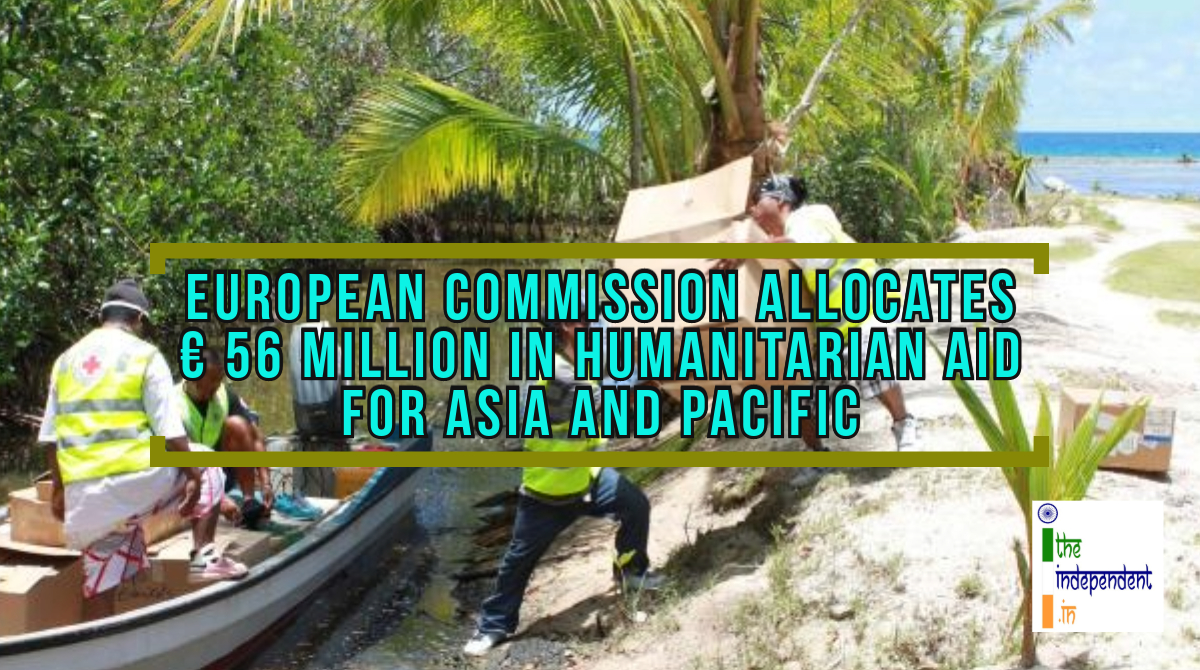
Objective of the funding is to assist individuals affected by the prevailing humanitarian crises in the region while also bolstering disaster preparedness
The European Commission has allocated over € 56 million in humanitarian aid this year to support people in need in Asia and in the Pacific.
The announcement was made on the sidelines of the EU-Indo Pacific Ministerial Forum and the EU-ASEAN Ministerial Meeting, which were held in Brussels. Both meetings offered an opportunity to discuss cooperation in areas of common interest, including disaster management and emergency response.
The primary objective of the funding is to assist individuals affected by the prevailing humanitarian crises in the region while also bolstering disaster preparedness in areas susceptible to natural calamities.
Speaking on the occasion, the European Commissioner for Crisis Management, in charge of European Civil Protection and Humanitarian Aid – Janez Lenarcic said, “Several countries in Asia and the Pacific continue to face emergency situations and other pressing challenges. Conflict in Myanmar continues to increase humanitarian needs, while Rohingya refugees remain in precarious conditions in Bangladesh after more than six years living in refugee camps. Also, the people affected by the Mindanao crisis must not be forgotten, while the whole region remains exposed to increasing natural hazards.”
He further said, “The EU thus remains committed to alleviate the suffering of the most vulnerable populations in the Asia-Pacific region. With this new €56 million will help our partners on the ground provide life-saving assistance to the most vulnerable, while also strengthening local capacity to respond to disasters.”
Of these funds, Bangladesh will get € 26.5 million and Myanmar will get € 19.2 million. Bangladesh is currently home to almost 1 million Rohingya refugees who have fled targeted violence, large-scale armed attacks, and human rights violations in neighbouring Myanmar. Most of them stay in the congested refugee camps of Cox’s Bazar, where conditions are extremely dire, with serious security and protection concerns, and no clear prospect for safe and voluntary return to their home country. The already dire humanitarian situation in Myanmar has spiralled since the military takeover in 2021. The coup d’état against the democratically elected government has plunged the country into political, social, and economic turmoil.
Another € 2.6 million will be allocated to the Philippines to respond to the protracted crisis in the Mindanao region, where communities continue to suffer the impact of armed violence combined with disasters induced by natural hazards.
Around € 4 million will go to strengthening disaster preparedness in Nepal, which is exposed to multiple natural hazards, some of which are increasingly frequent due to climate change. This funding will help reinforce local preparedness and capacity for response. An additional € 1.7 million will support disaster preparedness efforts in other parts of the region.
Natural hazards such as cyclones, floods, droughts, earthquakes, and volcanic eruptions frequently occur in the Pacific region. Pacific island countries, including Papua New Guinea, Fiji, Solomon Islands, Cook Islands, Micronesia, and Vanuatu, rank among the world’s worst affected by disasters in terms of casualties and number of those impacted. Due to climate change, this region is witnessing intense fluctuations in weather patterns, including changing temperature and precipitation, extreme climate events, and rising sea levels.







